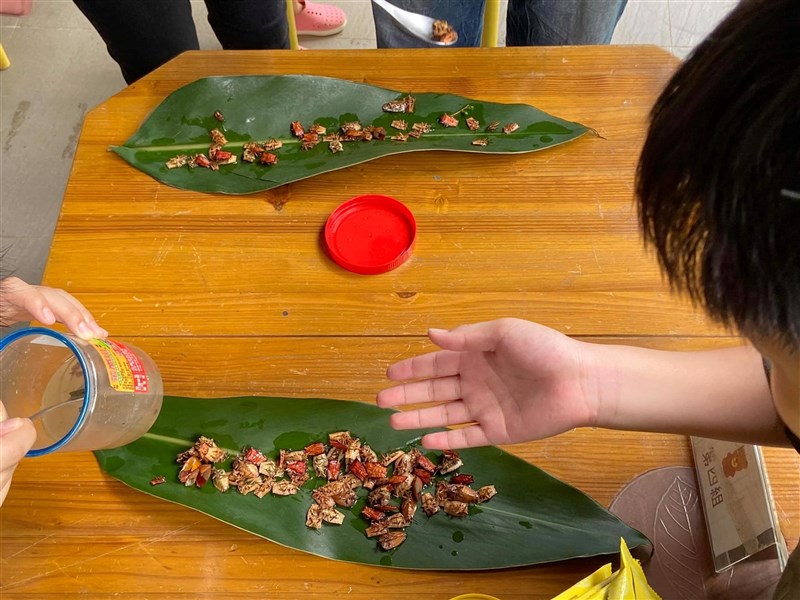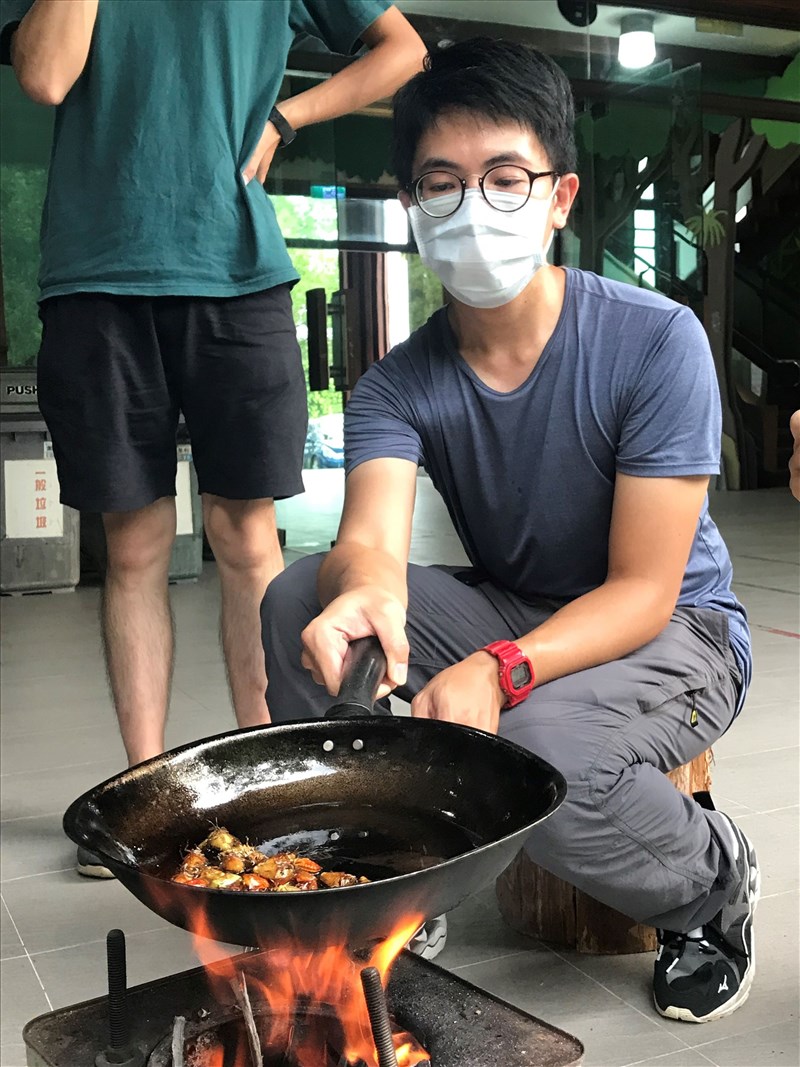
Taipei, May 10 (CNA) In early April, the Forestry and Natural Conservation Agency's Chiayi branch advised people to cook and eat lychee stink bugs to bring the invasive pests under control.
Not so fast, warned the Taiwan Food and Drug Administration (TFDA) on Friday, saying that there has been no confirmation that the bugs are safe to eat and that the public should not ingest them.
The TFDA's warning came after the forest agency made its recommendation on April 9 and demonstrated how to cook the bugs at an event titled "Bug-eating Kings" held by the Chiayi branch at the Chukou Nature Center on April 27.
The event showed participants how to turn insects into dishes, reflecting the potential of using insects' rapid reproduction to address the food production crisis brought by population growth and climate change, according to the forest agency.
Chiayi County Health Bureau Director Chao Wen-hua (趙紋華) told CNA that bureau staff and TFDA personnel went to the event after being notified by a member of the public about it.
It was later confirmed that no one at the event ate the bugs.

Lychee giant stink bugs were first spotted on Taiwan's main island in 2009, and are now commonly found during the summer on trees in the soapberry family, including longans and lychees.
When disturbed, the bugs release a corrosive, stinky liquid in self-defense, which can burn through leaves and fruit and has in recent years become a growing problem for Taiwan's longan and lychee farmers.
Though the forestry agency encouraged eating the pests as a way to control them, TFDA Deputy Director-General Lin Chin-fu (林金富) said Friday that lychee stink bugs are invasive pests, and there is no record to date that such bugs have been eaten in Taiwan.
Whether these bugs are safe to eat has not been confirmed, Lin said, and he urged the public not to eat the bugs to safeguard their health.
Lee Ting-chung (李定忠), deputy head of the forest agency's Chiayi branch who promoted the idea of eating the bugs on April 9, said the TFDA asked the center to adjust its cooking demonstration as only three kinds of insects are allowed to be eaten in Taiwan -- bee pupae, silkworm pupae, and a specific type of ant.
He said that the demonstration of frying lychee giant stink bugs came at the end of the event and that participants were told to not eat insects that are not allowed by law to be consumed in Taiwan.
Lin said the demonstration may have violated Article 15 of the Act Governing Food Safety and Sanitation, adding that the TFDA will remind agricultural units to be aware of relevant regulations when organizing similar events in the future.
According to Article 15 of the Act Governing Food Safety and Sanitation, "foods or food additives that have never been provided for human consumption and proven to be harmless to human health, shall not be manufactured, processed, prepared, packaged, transported, stored, sold, imported, exported, presented as a gift or publicly displayed."
Violations are subject to a maximum fine of NT$200 million (US$6.17 million), the article said.

Meanwhile, Chuang Yi-yuan (莊益源), an associate professor in National Chung Hsing University's Department of Entomology, told CNA that lychee giant stink bugs are edible, but that people need to be aware of the liquid they release.
Hsu Err-lieh (徐爾烈), an emeritus Professor in National Taiwan University's Department of Entomology, echoed that view and said people who are allergic to arthropods should not eat insects at all.
Insects are a good source of protein, however, so even though Hsu did not encourage people to consume lychee giant stink bugs, it was still fine for the government to promote them if it wanted to.
- Cross-Strait
MAC urges Beijing to be receptive to Lai's overture
05/20/2024 11:34 PM - Cross-Strait
Chinese scholars pessimistic about Lai's inaugural address
05/20/2024 11:29 PM - Politics
Opposition raises concerns over Lai's cross-strait stance
05/20/2024 11:00 PM - Cross-Strait
China likely to reject Lai's cross-strait exchange proposal: Scholars
05/20/2024 11:00 PM - Culture
Lai, Hsiao celebrate inauguration with 1st-ever state banquet in Tainan
05/20/2024 10:21 PM
